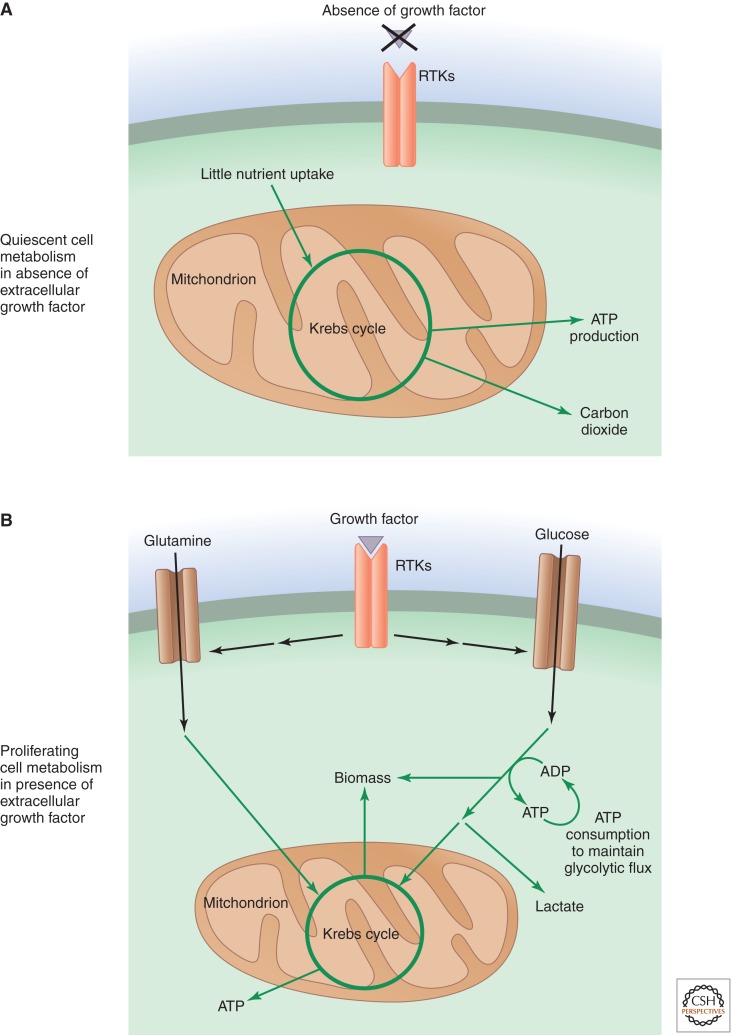Figure 1.
Growth-factor-initiated signaling reprograms metabolism in proliferating cells. (A) In multicellular organisms, cells that are not instructed to proliferate by extracellular growth factors are generally quiescent. In these cells, glucose carbon is predominantly metabolized to carbon dioxide in the mitochondrial Krebs cycle when oxygen is available. This mitochondrial oxidation maximizes free-energy generation in the form of ATP. (B) When cells are instructed to proliferate by growth factor signaling, they increase their nutrient uptake, particularly that of glucose and glutamine. Much of this increased nutrient uptake is used to fulfill the lipid, protein, and nucleotide synthesis (biomass) required for cell growth, and the excess carbon is secreted as lactate. Proliferating cells also may adopt strategies to increase their ATP consumption to maintain glycolytic flux. Metabolic pathways are indicated by green arrows.

